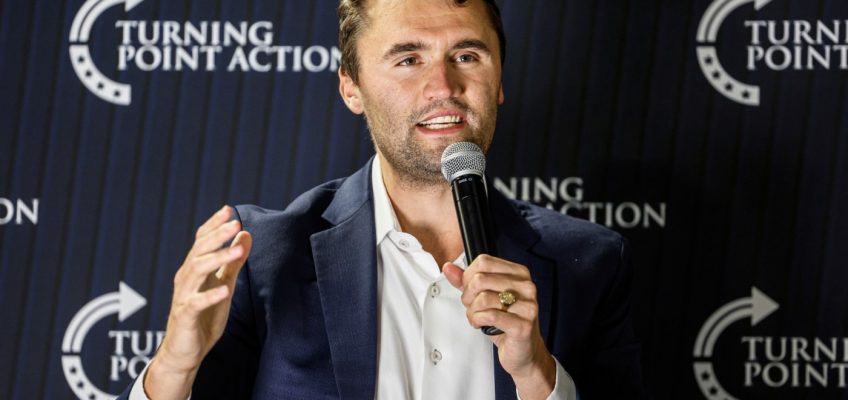The Gophers offered a scholarship to Chicago cornerback John Nestor in February 2022, but the three-star recruit committed to the Iowa Hawkeyes two months later.
Like being allergic to a bee sting; it hurt immediately, then swelled.
The U prides itself on stacking recruiting wins in the Chicagoland area. But the exacerbating factor was Nestor picked the Gophers’ bitter rival.
Three years later, Nestor transferred to the Gophers after spring practices, earned a starting spot in fall camp and made two interceptions — returning one for a touchdown — in a 66-0 win over Northwestern State on Saturday.
“If there is an opportunity for you to rekindle that flame, you do,” Gophers head coach P.J. Fleck said. “I thought that our staff did a really good job of that when recruiting John. Ultimately (we) didn’t get him initially, but we had a really good relationship built that when he went in the portal and he has three, four schools, you can be right in the mix.”
Here are eight things to know about Nestor:
Second chance
Gophers defensive coordinator Dany Collins, who attended nearby Chicago high school St. Rita, was a primary, initial recruiter of Nestor.
“We knew what type of person he was and the type of fit,” Collins said about re-recruiting him again this spring. “It all goes back to, again, the fit in this program. Being able to have that fit and then come right in.”
On losing Nestor originally, Collins said those are the breaks of recruiting, and they respected his decision. Now the 6-foot-1, 205-pounder has two years of eligibility remaining for the U.
Kingsbury connection
When Nestor visited the Gophers last spring, his host was linebacker Matt Kingsbury, who also attended St. Rita. The joy was evident on Nestor’s face when Kingsbury was talking to media members about Kingsbury’s two fumble recoveries — with one returned 25 yards for a TD — against Northwestern State.
“(Collins) went to a high school that is about 15 minutes from where I grew up,” Nestor said. “Same high schools as Kings — a rivalry — but we won’t talk about that right now. Just joking.”
First try
As a true freshman for the Hawkeyes, Nestor played immediately on special teams, and comparisons were made to him possibly becoming Riley Moss 2.0, an all-Big Ten cornerback now with the Denver Broncos.
But his sophomore year didn’t go well. He played 121 snaps on defense, allowing five receptions and one touchdown on five targets, along with three missed tackles in a 32-20 loss to Michigan State.
He would play only 29 defensive snaps over the final six games before going into the portal.
Illinois State wide receiver Braden Contreras (9) recovers a fumbled punt in front of Iowa defensive back John Nestor (7) during the first half of an NCAA college football game, Saturday, Aug. 31, 2024, in Iowa City, Iowa. (AP Photo/Charlie Neibergall)
Man of faith
The first question Nestor faced from reporters Saturday was about his 29-yard pick-six on the opening play from scrimmage against the Demons.
“Before I start, I just want to give all glory to God,” Nestor said from the podium at Huntington Bank Stadium. “He is my savior. He is my Lord, and I put him first throughout everything I do every day.”
Nestor, who attended Marist High School, a private Catholic prep school in Chicago, then gave a detailed answer on the big play that set the tone in the blowout.
“We were in Cover 3,” Nestor said. “Throughout our film study all week coaches were saying in that formation (Northwestern State) were running had a lot of hitches by No. 1 (the outside receiver), especially to the boundary. I read the (quarterback) and went with my gut feeling.”
Collins added: “We break the defensive staff meetings at night, and I go in the corner room and he’s in there watching film. He’s always going to take those little nuggets we give him and those coaching points. He is going to study tips and tendencies on his own as well and find some things as well.”
Man of football
The Marist football team started winter conditioning workouts at 5:30 a.m., but that wasn’t early enough for Nestor in the 2021-22 season. Nestor telephoned defensive backs coach John Stefanos about putting him through additional footwork drills on the football field at 4:30.
Stefanos replied: “If you’re gonna be there, I’ll be there.”
That meant workouts in the pre-dawn darkness. In December and January. In Chicago. They would do it in the freezing cold, and would only call it off if it was too snowy outside.
“The best way to describe him is passion and intensity,” Stefanos said. “He has always been that kid. He’s driven. He’s football smart. He doesn’t know any speed but full go. He’s special.”
‘Mesmerized’
Marist head coach Mike Fitzgerald coached at York Community High School in Elmhurst during Nestor’s career.
“I kind of got to see it from the other side,” Fitzgerald said. “And, man, he kept me up late at night trying to figure out how we were gonna block him and keep him out of the mix.”
Fitzgerald was supposed to be looking at the Redhawks defense as a whole, but was “mesmerized” watching Nestor’s physicality, athleticism and coverage skills.
“He was one of those guys on film where you get caught up just watching a player instead of, like, the defense,” Fitzgerald said. “He was just fun to watch.”
Nestor played safety, corner and receiver at Marist, and as a junior helped the Redhawks advance to the big school state semifinals.
Popular dude
During down times in college, Nestor returns to Marist and runs middle-school camps for defensive backs.
“The sixth, seventh, eighth-graders, they’re all: ‘Where’s Nestor? Where’s Nestor?’ ” Stefanos said. “They love him. He brings energy and knowledge and passion. And we just sit back and watch and let him run it. And it’s very popular.”
Incredible confidence
The Gophers are leaning into being “delusional” about how good of a team they have this season. Nestor has bought in.
“I got so much love for this team,” Nestor said. “Our HAVOC defense, man, we are the best in the country. I’m going to say that right now. We can go toe-to-toe against anybody in the country.
But there is also a dose of humanity. After Nestor’s second pick Saturday, he didn’t manage any return yards and poked fun at himself.
Minnesota Gophers defensive back John Nestor (17) intercepts a pass from Northwestern State Demons quarterback Abram Johnston (10) during the second quarter of NCAA football game at Huntington Bank Stadium in Minneapolis on Saturday, Sept. 6, 2025. (John Autey / Pioneer Press)
“It didn’t look the most athletic play when I fell on the ground,” Nestor said, “but it’s all good.”
Related Articles
Gophers running back Darius Taylor’s status for Cal game up in the air
Gophers move to 2-0 with rout of Northwestern State
Gophers football thankful for Vikings’ willingness to open doors, talk ball
Gophers football vs. Northwestern State: Keys to game, how to watch, who has edge
Get to know breakout Gophers receiver Jalen Smith




